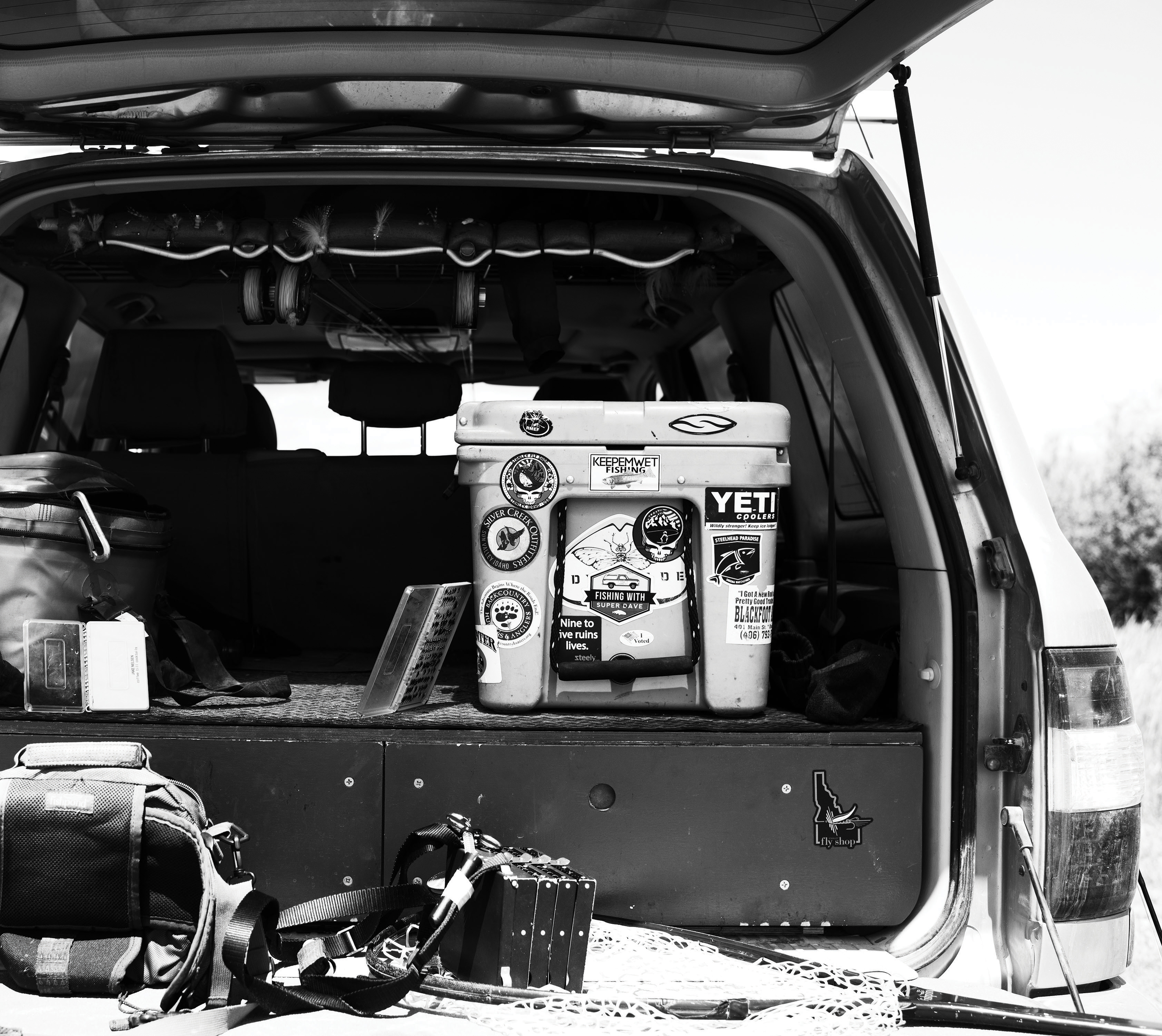
04 Feb A Guide’s Life
One thing is for certain: Fly fishing guides, when presented with a day off, often elect to fish. That means the dirty interior of the guide rig will go another day without vacuuming, and the dozens of circular plastic boxes full of flies — likely purchased in a last-second, caffeinated blitz moments before a guide trip — will go unorganized.
- Guide Dan Lahren readies a hopper-dropper rig on the Yellowstone River.
- Ritchie Thurston, a longtime guide in the Sun Valley area, fishes Idaho’s Silver Creek.
- Pablo Vinaras, head guide at Argentina’s Limay River Lodge, fishes a braided channel on the Limay.
Given that we don’t work in an office — where one can stroll down the hallway to ask a colleague if he or she has an extra spool of 5x tippet to spare — we often take fleeting moments in the morning, before our guide day officially begins, to talk shop. It can take place in a grocery store parking lot or in a semi-private nook in a fly shop: Is the take-out at mile marker 78 really doable? Have you seen any bugs after 11 a.m.? Did that jackass cut you off again yesterday? And since guiding isn’t always easy, it’s at the bar or fly shop at the end of a day where we can vent and share our frustrations, along with uncensored versions of the crazy things we sometimes watch unfold.
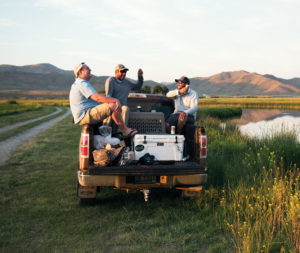
Three guides from Picabo Angler fly shop and outfitters in Idaho enjoy a riverside evening after a day on Silver Creek.
- Fly rods hover over a dirt road in Argentina.
- Guide Zac Mayhew gets some gear together prior to heading out for an evening on Silver Creek.
- Guide John Huber gets a hopper ready on an early September day on Silver Creek.
Long before the season begins, and usually over the course of many guide seasons, small sub-groups of guides organically form. Within these groups, we share intimate details, forming trust and bonds. But lie to this tiny tribe, and it’s over; that’s an unspoken rule. On the river, most of us are amiable with each other and will generally go out of our way to be polite and helpful. But when a guide has consistently broken rules of etiquette, he or she is cast aside and left essentially tribeless.
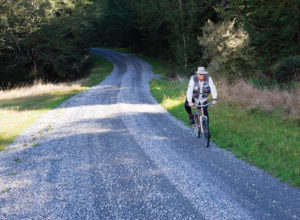
This is guide Scott Murray’s preferred shuttle vehicle on a dirt road on New Zealand’s South Island.
- Fabian Gastaldi heads out for the day from the guide room at the Limay River Lodge in Argentina.
- Guide Nano Martinez winches in the drift boat on his home waters on he Limay River.
- Area guides gather at the Murray Bar in Livingston, Montana, after a day on the water.
Many of us become guides so that we can spend our days outside in places we love and cherish. There are so many wonderful tiny moments over the course of a season that, when put together, amount to something that could even begin to dignify what we do. Success is not measured by your net worth, but by how a hot August day on any given river still manages to put a sincere smile on your face, even after 25-plus years of fishing those waters. Success on the river is having a client watch — in awe — a tiny trico dun morph, shed a layer, become a spinner, and fly away.
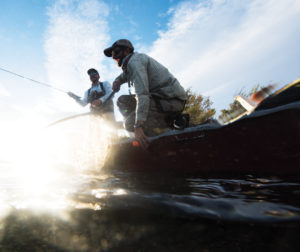
Guides Zac Mayhew and Pablo Vinaras enjoy the fly fishing on Argentina’s Limay River.
In many ways, guides are like teenagers playing street baseball 50 years ago. We learn the consequences of striking out and love to hear the ball and bat connecting. More importantly, we learn to appreciate the small events that occur each day and that cumulatively form a narrative connecting us to the natural world. “Can you believe this happened to me today?” a guide might say. “I watched lightning crash into a tree.” It’s all in a day’s work.



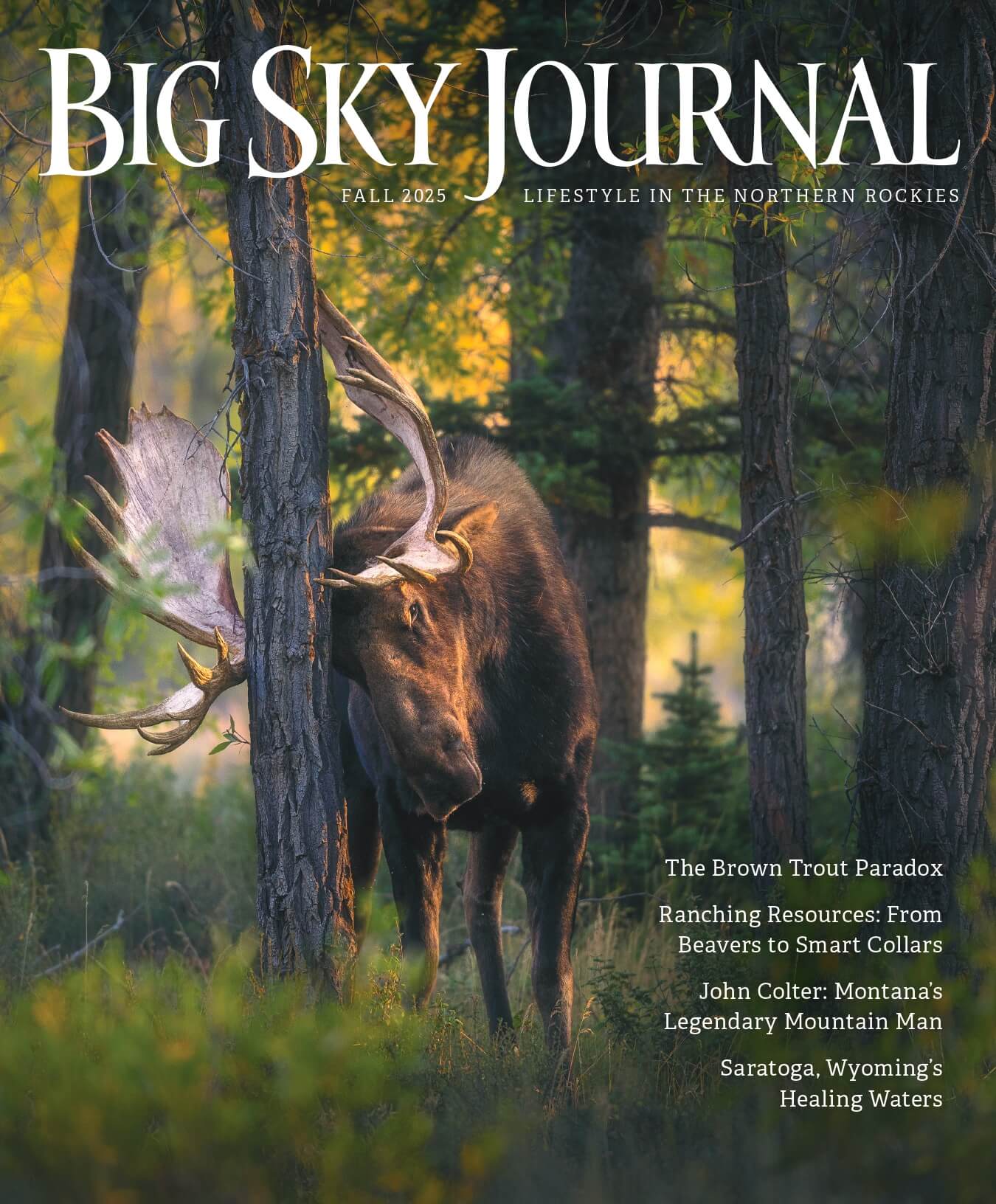

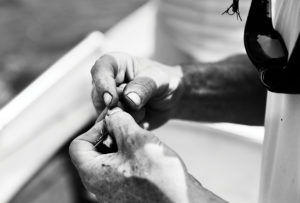
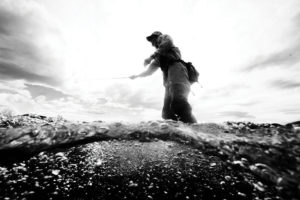
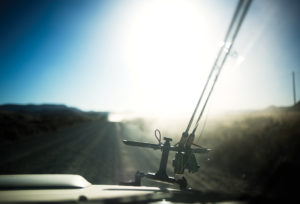
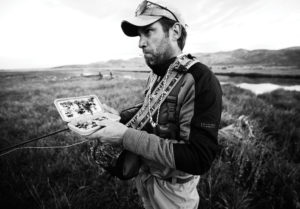
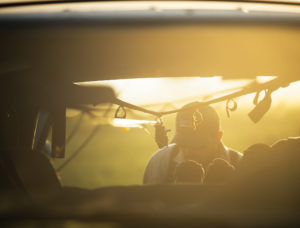
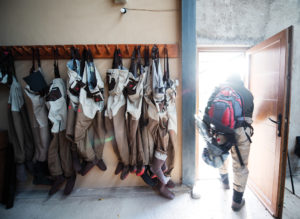
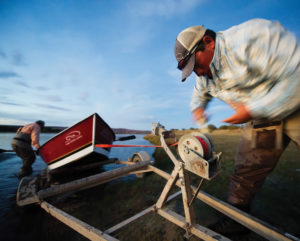

No Comments